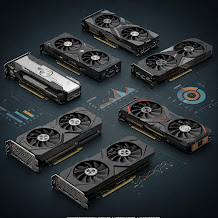Linux vs. Windows: Which is Better in 2025?
The Ongoing Debate
The battle between Linux and Windows has been going on for decades. While Windows dominates the consumer market, Linux runs on most of the world’s servers, supercomputers, and even Android smartphones. But which operating system will be the better choice for you in 2025?
Key Differences
Open Source vs. Proprietary: Linux is open source and free to use, while Windows is proprietary and requires a license.
Customization: Linux offers extensive customization, while Windows provides a more standardized experience.
Security: Linux is generally considered more secure due to its permissions-based structure and fewer targeted attacks.
Software Availability: Windows has broader support for commercial software, while Linux relies on open source alternatives.
Pros and Cons
Linux
Pros:
✔ Free and open source
✔ Customizable
✔ More secure and stable
✔ Lightweight and efficient
✔ Ideal for developers and servers
Cons:
✘ Steep learning curve
✘ Limited support for some commercial applications and games
✘ Fewer drivers for plug-and-play hardware
Windows
Pros:
✔ User-friendly and widely supported
✔ Compatible with most software and games
✔ Strong customer support
✔ Regular updates and improvements
Cons:
✘ Requires a paid license ($139–$199 for Windows 11 Home/Pro)
✘ More vulnerable to malware and cyberattacks
✘ Higher system requirements
2025 pricing
Windows 11 Home: $139
Windows 11 Pro: $199 USA
Linux: Free (various distributions available)
What experts and users say
Software developers prefer Linux for its flexibility, security, and development environment.
Gamers and casual users tend to favor Windows for its better compatibility with games and software.
Businesses often choose Windows for corporate support and software integration, but also use Linux for servers.
Final Verdict
Your choice depends on your needs:
For gaming and everyday use → Windows.
For security, development, and productivity → Linux.
For businesses → A combination of both depending on your use case.











Comments
Post a Comment